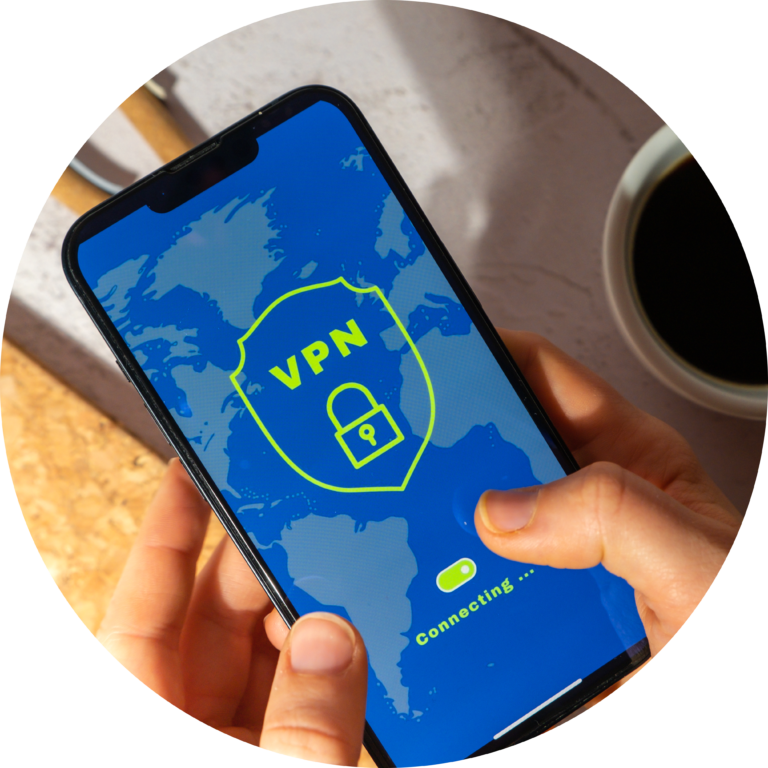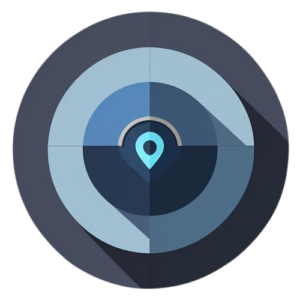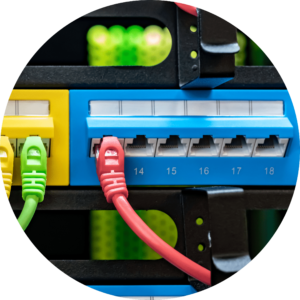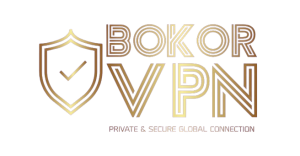A VPN: What is it?
A Virtual Private Network (VPN) is a service designed to safeguard both your online privacy and sensitive data.
Discover the ways in which VPNs enhance your security when using public Wi-Fi, conceal your online activities, and provide additional benefits.
Try Risk-Free for 31 Days

What advantages does using a VPN offer?
Safeguard your location and
IP address.
With a VPN, you can quickly change your IP address to any country so you can access foreign content and remain anonymous online.
Your unique IP address tells the Internet who you are, what you do, and where you are in the globe.

Uncensored travel
By concealing your true location, a virtual private network, or VPN, allows you to access the internet without restriction.
You can use a VPN virtually anywhere, including on public WiFi networks and airplanes, as well as for private browsing at work or school.
Protect your digital activities
Your Internet Service Provider (ISP) and companies, such as advertising, can see what you do when you visit the web.
A VPN prevents these parties from tracking your online behavior, allowing you to browse in private.
Safeguard your loved ones’ digital privacy.
To enjoy the Internet with peace of mind, you and your loved ones can add a VPN to your router.
VPNs for routers let you secure every device that is linked to your home WiFi.
Why is using a VPN recommended?
Take care of your online safety by using a virtual private network (VPN), which operates in the background of your device and will not interfere with your online activity. Here are some examples of digital situations where a VPN can be necessary:

Have no location blocks
Enjoy more of your preferred material from across the globe by selecting from 6,500+ BokorVPN servers spread over 78+ nations. This will enable you to effortlessly bypass geographical restrictions.
P2P file sharing and downloading
Keep your true IP address hidden from scammers, hackers, and websites. With total anonymity and security for your internet connection, you can upload and download P2P files.

Use public WiFi safely
Take pleasure in private browsing in the airport, in your preferred coffee shop, or anywhere else. With strong, integrated security features and protocols like IKEv2, WireGuard, and more, you can safeguard your online activities.

Safe and enjoyable gaming experience
To increase your gameplay time, lower your gaming console's ping and lag periods. Play your favorite games in peace and privacy by protecting your gaming servers with a dedicated IP add-on.

Avoid Censorships
Unblock key websites and services that have been blocked by your government. For peace of mind when browsing your favorite content, add a robust layer of protection to your online activities.

Privacy that travels with you
To access private internet while traveling, keep your accounts active on up to ten different devices. With BokorVPN, you can get the most out of your data or Internet connection thanks to its 20Gbps lightning-fast connections.

Get rid of ISP throttling
For speedier online browsing, hide your IP address and online activities from your internet service provider. To browse the internet safely and with greater peace of mind, keep your online activities secret.

Prevent DDoS Attacks
Prevent risks before they arise to enjoy safer gaming and e-commerce servers. With always-on DDoS protection, you can safeguard both yourself and everyone else and do what you love to do.

Unrestricted cryptocurrency trading
To access additional cryptocurrency exchanges, hide your IP address. Use IP masking and encryption to give your transactions the highest level of security so you may trade with confidence.
How a VPN functions?
A virtual private network (VPN) is a multi-layered security system that operates on 5 main levels.
01
For Windows, enter “cmd” in the search bar. If you’re using a Mac, type “terminal.”
04
Every action you take online is routed through a secure VPN tunnel, making it unreadable by third-party trackers such as your internet service provider.
02
Your traffic is encrypted by your VPN before being forwarded to its intended location.
05
The requested data is encrypted and returned to you by the server after it has been received.
03
By transmitting encrypted data back through the VPN, the proper destination decrypts the data you sent out.
VPN client
The application that allows you to access and modify the VPN service.
VPN Tunnel
A secure environment via which your data is transferred from your device to the server.
VPN Servers
Large data center set up to provide and host VPN services, with the option of virtual or real servers.
VPN protocols: what are they?
There are nine VPN protocols, which are the methods a device uses to establish a connection to a VPN server. Certain protocols are better for security, while others are better for speed.
Open VPN
OpenVPN, one of the most widely used VPN protocols, strikes a decent mix of security and speed.
L2TP
L2TP is used in conjunction with IPsec for encryption and authentication; it provides no security on its own.
PPTP
Despite being the fastest VPN protocol, it is outdated date and not advised for security purposes, which makes it ideal for activities like streaming.
IKEv2
A faster, more modern VPN protocol that works with all major mobile operating systems.
WireGuard
The newest VPN protocol is called WireGuard by BokorVPN; it is open-source, extremely quick, and employs cutting-edge cryptography.
IPsec
Although IPsec is frequently used in conjunction with L2TP and IKEv2, it can also be used as a stand-alone VPN protocol.
Can I use any kind of VPN?
You can get four different types of VPNs for your devices.
Free VPN
There are free VPNs available. However, they have less security features than premium VPNs and can monitor you by gathering your data.
Personal VPN
You can get a personal VPN, which provides you with all the features you require for a more independent and private online connection.
Bssiness VPN
Employees who work remotely or in the office use Business VPN to securely access both the company's internal network and the outside internet.
DIY VPN
There are tech professionals who make their own VPNs. However, they may omit security measures like shared IP addresses and multi-national server locations.
How to set up a VPN?
Step 2
Download
Download and install the app on your device.
Step 3
Connect
Join the server, log in, and click "Connect" to start enjoying your privacy online!
What devices are VPN-compatible?

Computers & Smart Phones
A VPN connection can be established on a computer, tablet, or mobile device. Go to the VPN app store or website, download the app, and begin safeguarding your digital privacy.
Web browsers
One easy and quick approach to use a VPN to preserve your online privacy is to add a browser extension. For browsers like Chrome, Brave, Firefox, and Edge, VPN addons are available.


Smart TVs, Routers and More
A VPN can be used on smart TVs, gaming consoles, streaming sticks, and boxes. It can also be used on your router to provide a safer connection for the devices that are connected to it.
What are a VPN's limitations?
As with any technology, a VPN has its limitations. These four are the primary limitations of a VPN:
Your new VPN’s security procedures may cause your internet connection to lag a little.
An antivirus program is necessary for file scanning; a VPN cannot scan downloaded content for malicious code or safeguard your devices from infections.
Since VPN censors on streaming sites are becoming more and more powerful, you might need to test out a few different servers before you can view your preferred material.
While a VPN by itself cannot provide total anonymity online, you can enhance your online privacy by combining it with an anti-tracking browser.
Are there any substitutes for VPN?
Indeed, you may utilize VPN substitutes for additional purposes and to strengthen the security of your VPN.
Here are three VPN substitutes:
Proxies
A proxy server functions as a mediator between your device and the internet. Proxy servers protect your devices and internet connection by acting as firewalls and filters.
Smart DNS
By using your Domain Name Server (DNS), smart DNS allows you to circumvent geographical restrictions automatically. It hides your actual DNS information and substitutes it with an alternate set of DNS data.
Tor
The origin of your data is hidden thanks to Tor, a free network of servers that randomly routes information between itself. Excellent anonymity from outside trackers, such as your ISP, is provided by Tor.
What more functions does a VPN provide?
You may enhance your VPN’s security features even further.
Dedicated IP
To stay safe online and take advantage of the ease of access to content from different countries, get your own IP address that conceals your true one.
Port Routing
Use port routing to play your favorite games, access your remote desktop, and download files more quickly.
DDoS Prevention
DDoS assaults are similar to intentional traffic jams. Prevent DDoS attacks on your server or business before they ever begin by taking precautions against them.
Frequently Asked Questions
Here are some of the most frequently asked questions about Bokor VPN:
Since you have a plethora of VPN alternatives at your disposal, we have prepared an information-packed guide to assist you in selecting the best option for you and your family. Click Here to access the guide.
BokorVPN is unable to observe or monitor whatever you do online, in contrast to free VPNs which may put you at risk of tracking.
VPNs conceal your online activities from your Internet Service Provider (ISP) by altering your IP address and encrypting it.
Additionally, because of this degree of security, it is more difficult for outside parties, such as advertising, to connect your online activities to you.
VPN use is just one aspect of Internet privacy.
You may take many more precautions to safeguard your online privacy, such as using an antivirus program and exercising caution when clicking on links or sharing content on social media.
Visit our Safe Zone to learn more about how BokorVPN manages your data.
No one can truly be anonymous online, either in their own right or on behalf of another.
The good news is that using a VPN greatly increases the difficulty with which outside parties or companies can monitor your internet activities.
A trustworthy VPN service provider will not have access to or retain any logs of your online activities; they will only preserve basic information, such your email address, for customer support purposes.
Visit our Safe Zone to learn more about how BokorVPN manages your data.
We designed BokorVPN to function in tandem with your Amazon Fire TV Stick's speed.
Because of this, BokorVPN operates at a 20Gbps speed, which is greater than the Internet speeds found in the majority of homes and businesses.
As of October 2022, the following nations have complete bans on VPN use: Belarus, Iraq, North Korea, and Turkmenistan.
As of October 2022, the following nations do not allow VPN use: China, Iran, Oman, Russia, Turkey, and the United Arab Emirates.
Verify your local regulations if you are not sure if using a VPN is permitted in your nation.
Free VPNs are available, but they still expose your connection to internet risks and can follow and gather your data.
We take great care to ensure that BokorVPN is secure for all users, and we do not trace you.
The location where we keep the source code for BokorVPN is likewise secured by multi-factor authentication.
(Here write about trial period offered to users such as “Try Risk-Free for 31 Days“)
Check out our Safe Zone for further information on how BokorVPN deals with your data.
Step 1 - Select your BokorVPN subscription by clicking here.
Step 2 - Download and install the app on your device.
Step 3 - Join the server, log in, and click "Connect" to start enjoying your privacy online!

